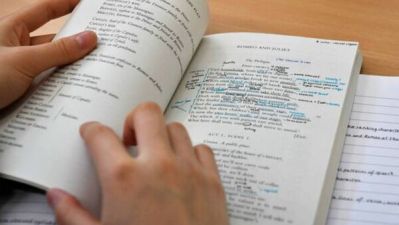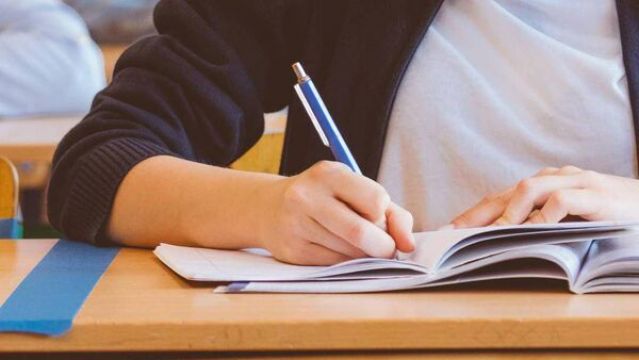Almost a quarter of students in disadvantaged schools have poor reading levels, compared to one-tenth in other schools.
The finding is part of a new report by the Educational Research Centre which has looked at students' reading, maths and science levels from 2018.
Overall, Irish students ranked fourth out of 36 OECD countries for reading and 16th out of 37 OECD countries for maths.
Co-author of the report, Dr Lorraine Gilleece, says the gap has narrowed in the past decade but more needs to be done to help disadvantaged students.
The Programme for International Student Assessment (PISA) study results show the average reading score in DEIS schools is at the level of the OECD average.
While the average reading achievement was lower in DEIS than in non-DEIS schools, the difference between the two was smaller in 2018 than in 2019.
In maths and science, students in DEIS schools scored below the OECD average and below students in non-DEIS schools.
It also highlights that three in ten students in disadvantaged schools have poor levels of maths and science, compared to roughly one in ten in other schools.
22 per cent of students in DEIS schools have low reading scores, compared to 9 per cent in non-DEIS schools.
"Most of the improvement in reading achievement in DEIS schools was between 2009 and 2012," said Dr Gilleece.
"While there has been little change since 2012, these earlier achievement gains have been sustained. This is consistent with trends in non-DEIS schools over the same period where we have seen stable achievement patterns since 2012.
"The situation remains in 2018 that 22 per cent of students in DEIS schools have low reading scores, compared to 9 per cent in non-DEIS schools, and according to the OECD, these students are likely to have inadequate reading skills for future study and work.
"Across the OECD on average, 23 per cent of students have low reading scores."

The report suggests there is a need to assess, monitor and support students' reading difficulties using appropriate tools at post-primary level.
Minister for Education, Norma Foley, welcomed today's report saying there is promising evidence of improvements in DEIS student achievement and a narrowing of the gap between DEIS and non-DEIS schools.
The minister said the Department of Education will spend around €125 million on the DEIS programme in 2020.
"The DEIS programme provides that if we are to have the maximum possible impact on providing opportunities for students most at risk of disadvantage, then our extra resources must be targeted as closely as possible at those students with the greatest level of need," said Ms Foley.







